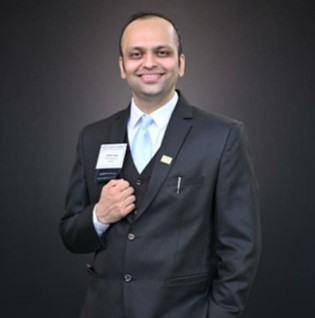iTransform – Making India Future Ready _ Trascender Services _ Mumbai

Germany can be your final destination!
from 11th standard!
HOW?
- B2 Certification by 12th
- 12th Passing
- 3 Years of skilling in Germany with monthly stipend!
- Employment in Germany across Hospitality, Automotive, Banking, Healthcare, Aviation and Manufacturing sector!
German Career Program
Top vocational training programmes in Germany

iTransform Vocational Training programmes in Germany
The best Ausbildung course in Germany depends on your interests and career goals. Popular options include technical fields like mechanical engineering, electrical engineering, automotive engineering, and mechatronics.
You must have completed your compulsory education, usually up to the 12th grade and you must be proficient in the German language. Candidates should fall within the age range of 18 to 24 years to be considered for this role.
The salary of a nurse in Ausbildung course in Germany can vary, but on average their average salary is around €2,500 depending on the region and the specific employer.
Some programs in Germany are offered in English, but the majority are conducted in German so German language proficiency is required.
Top Vocational Training Programmes in Germany
Automotive technician
Germany, automotive technician Ausbildung (apprenticeship) is a comprehensive vocational training program that equips individuals with the skills and knowledge required for a career in the automotive industry. This apprenticeship typically lasts for three and a half years, combining practical on-the-job training with theoretical coursework. Apprentices learn to diagnose, repair, and maintain vehicles, gaining expertise in mechanical and electrical systems. The average monthly income is between €2.200 for a beginner and €2.800 for an experienced mechanic. The program is highly regarded, providing a strong foundation for a successful career in automotive technology and often leading to well-paid positions in a country known for its automotive excellence.
Mechatronic
The combination of mechanics, electronics, and computer science is a vital component of the Mechatronics program. This program typically lasts 3.5 years, with practical training in companies and theoretical instruction in vocational schools. As a Mechatronics apprentice, you’ll gain expertise in mechanics, electronics, and programming, preparing you for roles in various industries like automotive, manufacturing, and robotics. Germany pays a specialist in Mechatronics an average annual income of €60,421. Germany ensures hands-on experience, making graduates highly sought after for their practical skills and in-depth knowledge of mechatronic systems.
Tourism professional
Tourism Professional is for individuals aspiring to the tourism industry. This program spans approximately three years and combines practical experience with classroom learning. Students gain expertise in customer service, tour planning, marketing, and hospitality management. Successful completion of the program results in a recognized certification, opening doors to diverse career opportunities within Germany’s thriving tourism sector.
Event Management
Event management offers training in planning, organizing, and executing various events. These programs typically last for 2-3 years and combine theoretical knowledge with practical experience. Students gain insights into event logistics, marketing, and customer relations. Germany’s renowned vocational education system ensures a hands-on approach, including internships, making graduates well-prepared for the event industry. Event managers might make between €2,500 and €3,000 per month on average. Graduates often find opportunities in event agencies, convention centers, or even as freelancers, contributing to the country’s vibrant event scene and international reputation for excellence in event management.
Medical-Technical Radiological Assistant
Medical-Technical Radiological Assistant vocational course trains individuals to operate radiological equipment and assist medical professionals in diagnostic procedures. Typically, this course lasts for 3 years, providing comprehensive training in medical imaging techniques and patient care.
Medical device reprocessing specialist
The medical device reprocessing specialist vocational course teaches the proper cleaning and sterilization of medical instruments. Typically, the course duration ranges from a few months to 1 year, depending on the program and institution.
Surgical Technical Assistant
The Surgical Technical Assistant vocational course typically covers surgical procedures, sterile techniques, and medical equipment. The duration is typically around 1 to 2 years, providing practical skills for assisting in surgeries.
Nursing/Midwife
The nursing/midwife vocational course trains students to care for patients, assist in childbirth, and provide medical support. The course typically lasts 2-3 years, equipping students with essential skills for healthcare roles. It combines theoretical education with practical clinical experience. Students learn about anatomy, physiology, nursing care, pharmacology, patient care, medications, and healthcare ethics. They gain hands-on experience in hospitals or care facilities. Successful completion leads to a recognized nursing qualification. The program prepares students for the challenges of the healthcare field. It’s a vital step for those aspiring to become skilled and compassionate healthcare professionals in Germany.
Nursing/Midwife
The nursing/midwife vocational course trains students to care for patients, assist in childbirth, and provide medical support. The course typically lasts 2-3 years, equipping students with essential skills for healthcare roles. It combines theoretical education with practical clinical experience. Students learn about anatomy, physiology, nursing care, pharmacology, patient care, medications, and healthcare ethics. They gain hands-on experience in hospitals or care facilities. Successful completion leads to a recognized nursing qualification. The program prepares students for the challenges of the healthcare field. It’s a vital step for those aspiring to become skilled and compassionate healthcare professionals in Germany.
Core Team

Mr. Dhanesh Joshi
Founder, Edunova, Workshops/Training Partner
